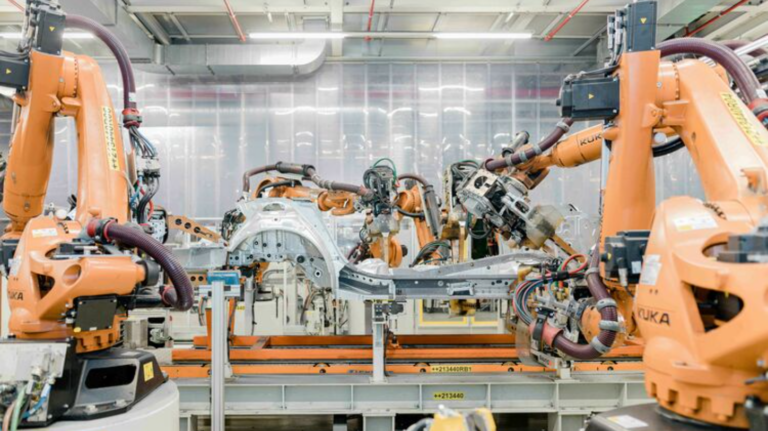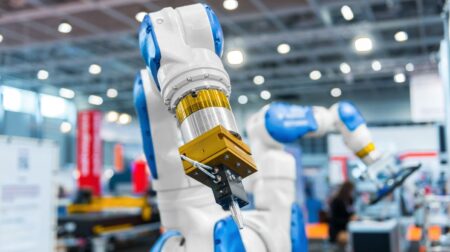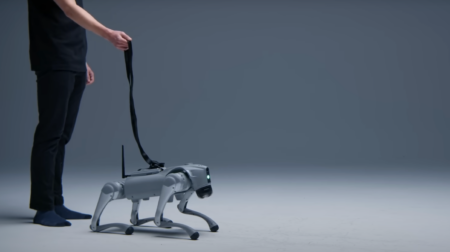After trialling the technology, carmaker Audi has announced that it will be implementing artificial intelligence (AI) throughout its quality-control processes at three sites by the end of 2023.
The AI was previously developed and tested beforehand at the Neckarsulm site. Using the AI, Audi has reported around 1.5 million spot welds on 300 vehicles each shift at the site.
Until recently, ultrasound technology was used to manually monitor the quality of resistance spot welding.
The rollout forms part of a wider agenda from Audi to digitise its production-line operations to encourage more flexible operations and logistics.
With the ultrasound method, Audi reports having checked around 5,000 spot welds per vehicle. By applying AI, employees can now focus on possible anomalies. This new approach is intended to help control quality more efficiently and in a more targeted way.
Preparations for using the technology at other plants in the Volkswagen Group have already begun, with the system currently being installed at a Brussels facility.
“Digitalised assembly lines are a foundation for Audi’s vision for the production of the future: As part of our 360factory production strategy, we will make production at Audi locations worldwide even more efficient,” said Gerd Walker, board member for production and logistics, Audi.
“In this regard, the use of artificial intelligence in series production promises huge potential.”
The trial was conducted with the support of the German Association for Quality (DGQ), the Fraunhofer Institute for Industrial Engineering (IAO), and the Fraunhofer Institute for Manufacturing Engineering and Automation (IPA).
One of the key aims of the project was to establish a competence network for digital factory transformation and innovation.
On its way to becoming a smart factory, Audi and partners from science and the IT industry are testing digital solutions to produce vehicles in a real manufacturing environment in Neckarsulm to deploy them in series production later.








